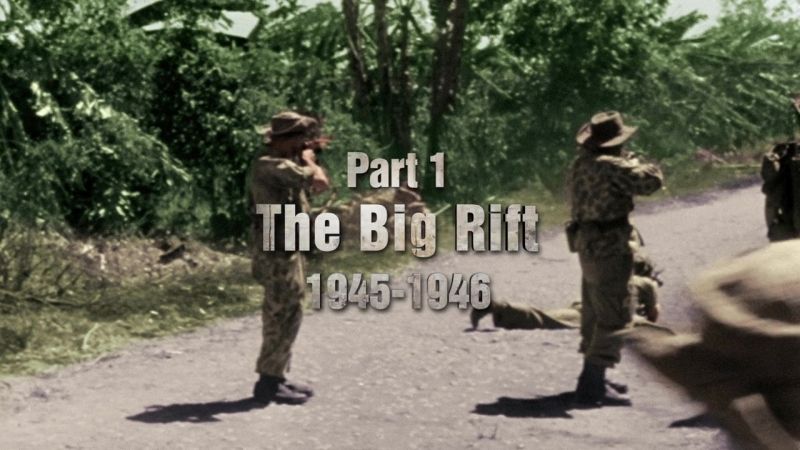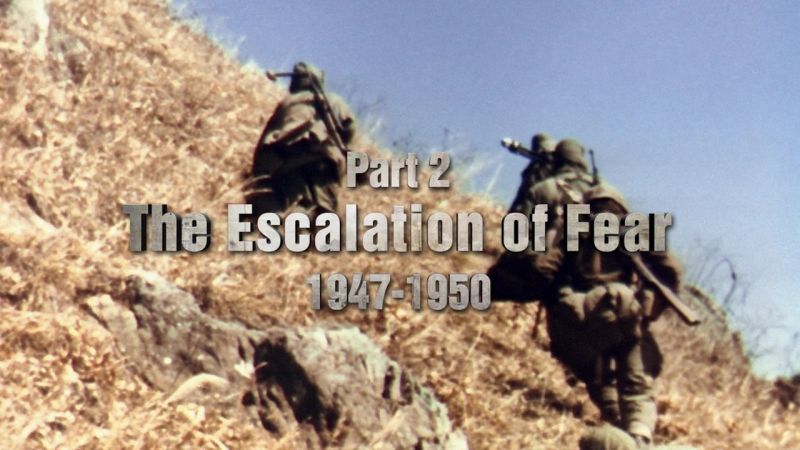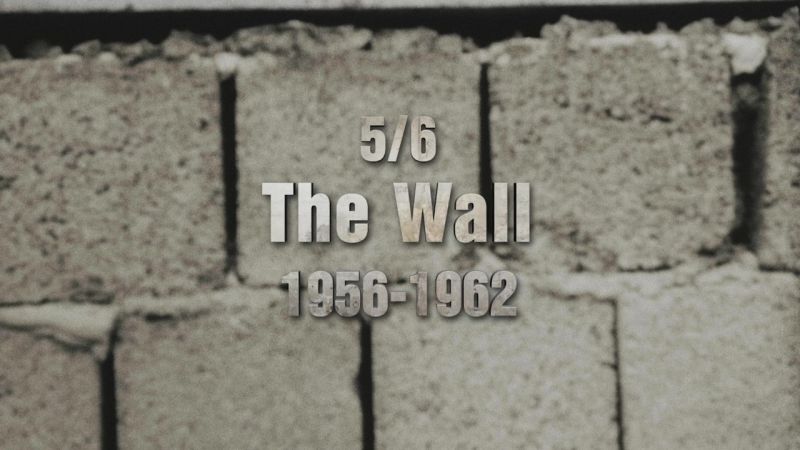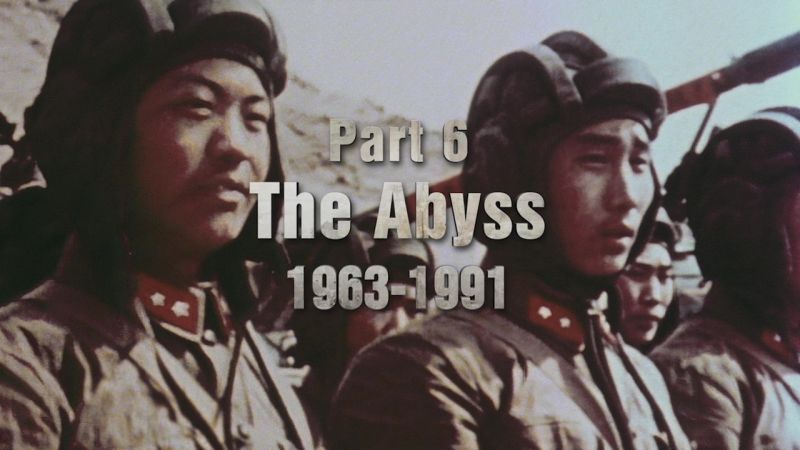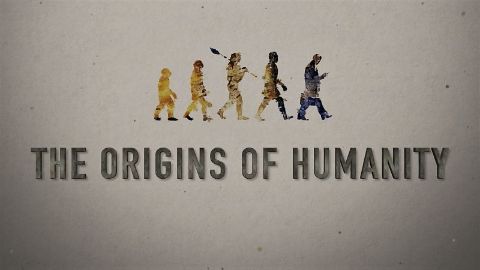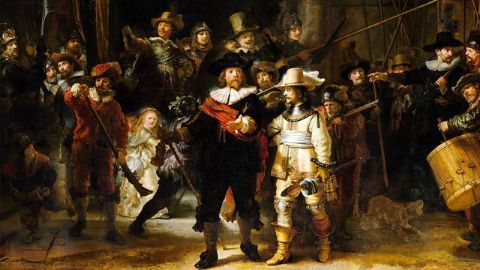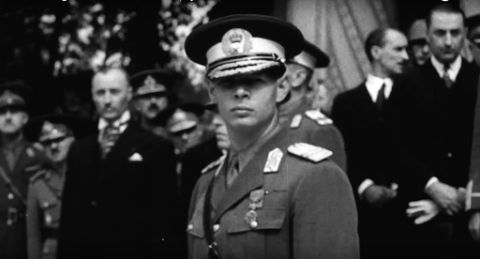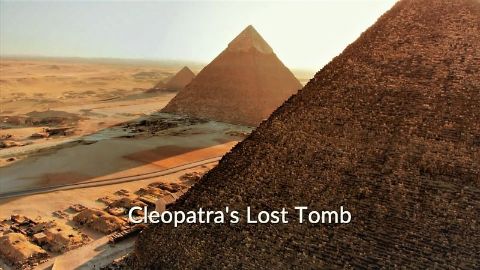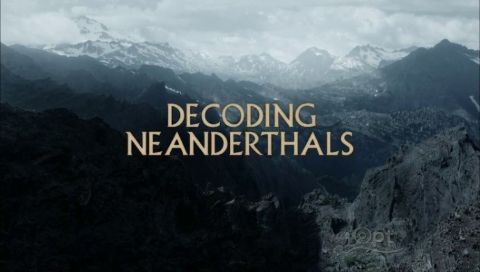Apocalypse: War of Worlds 1945-1991 • 2019 • 6 episodes •
Summer 1945. Leaving the atrocities of World War II behind, the Allied nations wholeheartedly celebrate victory and enjoy a return to world peace. But, behind the scenes of the post-war era, a more drawn-out, insidious confrontation is in the making between those who must build the world of tomorrow. In the West, the Americans and the British are concerned about Stalin's growing power in the East. He no longer hides his expansionist designs. Communist ideology continues to spread, especially in Indochina, where one of the twentieth century's longest conflicts is in the works. In this former French colony, Ho Chi Minh will emerge as the great figure of the Vietnamese struggle for independence. This convinced Communist clandestinely formed a small army which was going to fight the French troops sent to reconquer the territory in 1946. But behind this seemingly isolated conflict lie other issues, through which the Western world and the Communist bloc will soon clash. Especially since the Americans experimented in the summer of 1945 with a new extremely effective and terribly destructive weapon: the atomic bomb. It is the cold war, the war of the worlds, that threatens mankind with a new apocalypse.
2019 • History
1947. Fearing that a damaged Europe might fall prey to Communism, President Truman launches the Marshall Plan, a major loan package offered to European nations to assist in their reconstruction. It is also a way to help the French in Indochina, where Ho Chi Minh has established a proper government, working from its "bamboo ministries". His army and his influence grow with each passing day. At the Kremlin, Stalin celebrates his 70th birthday. The grandiose celebrations organized for him around the world are a testimony to his power. In Berlin, he has imposed a blockade, which is overcome only thanks to the bravery of American pilots and their airlift. But Stalin prefers to focus on the success of his brand new atomic bomb. And the red wave continues to progress... In China, after a long civil war, Mao Zedong installs a totalitarian regime which will kill more than 50 million people in thirty years. In Korea, communist troops from the north have crossed the 38th parallel and are heading south, facing a South Korean army lacking men and supplies. Truman decides to intervene: commanded by General McArthur, the UN troops are sent to the front. A real debacle awaits them. Entrenched in the far south of Korea, in Pusan, Americans are surrounded by the enemy, will they be able to hold out
2019 • History
September 1950. On the banks at Incheon, 30 miles from Seoul, General MacArthur is victorious. The landing he planned, to rescue his men stuck in Pusan, was a success. But the war isn't over. In the North, the Americans will have to face an unexpected enemy. On the other side of the frozen Yalu river, Mao, covert as always, has stationed 300,000 of his men. On Thanksgiving Day, the Chinese and North Koreans attack the US army, whose only choice is to fall back. Faced with his army's defeat and Chinese intervention, Truman considers the atomic bomb... Further south, in Indochina, the French are also suffering setbacks. An ambush set by the Vietminh on the road Route Coloniale 4 annihilates them. To relieve the situation, the French government sent as a last resort one of its most famous generals: Jean de Lattre de Tassigny. French win a victory in Vinh Yen , but suffer heavy losses too. The parallel between Korea and Indochina is striking: the same hidden operators, frightened civilians, bomb blasted regions, columns of emaciated prisoners... For De Lattre, it is indeed one and the same war: the war for freedom, against communism. And the real enemy is Stalin, who sends North Koreans weapons and MIG-15 planes, and struts in front of his people with a super bomber capable of carrying his brand new atomic bomb. Will Stalin conquer the world?
2019 • History
March 1953. Stalin is dead. Following many long hours of agony in his dacha, the Little Father of Peoples is now no more than an embalmed corpse. His potential successors eagerly flock to pay their respects. In East Berlin, a wave of hope swept through the German workers who rise up against the Party. This hope is swiftly crushed by Soviet tanks... In Asia, the hot conflicts are coming to an end. After the Panmunjom truce, the US ingloriously leaves Korea. The few remaining troops impatiently await a visit from Marilyn Monroe. In the meantime, in Indochina, another army prepares for a far less exciting event. The French hope to stop the Vietminh in Dien Bien Phu, a village surrounded by mountains 300 km from Hanoi... But the French generals do not suspect that at the same time, General Giap of Vietminh and his Chinese advisers, are developing a plan battle that will take the form of a trap: let the French forces settle in the basin of Dien Bien Phu, then surround and destroy them. The French army soon evacuated the country, terribly bruised and humiliated, but Ho Chi Minh only partially triumphed: during the Geneva negotiations, his Chinese and Soviet comrades disappointed his expectations, for fear of an escalation of the conflict. Ho Chi Minh got North Vietnam, but the South is still in Western hands. What will Ho Chi Minh do?
2019 • History
February 24, 1956. During the Soviet Communist Party's twentieth Congress, Khrushchev stuns everyone by denouncing Stalin's crimes. Without denying the ideology, the USSR's new leader seeks to distance himself from his predecessor and open up to the outside world. "Mister K" is full of surprises. He drinks Pepsi with Nixon and insists on spending a day at Disneyland when he visits America... But behind this clown-like character, the "executioner of the Ukraine" hasn't gone soft. In 1956, he didn't hesitate to crush the uprising in Budapest in bloodshed. Now, he is preparing a co-existence with newly elected President Kennedy that will not be all peaceful: construction of the Berlin Wall, the Cuban missile crisis, and not forgetting the aid to Ho Chi Minh in the preparation of his new war for reunification... The Vietnam War is beginning. Kennedy tries to retaliate: in Vietnam, he sends military advisers to train the army of the south. And in Berlin, on June 26, 1963, he gave the famous speech of hope, declaring in front of an excited crowd: "Ich bin ein Berliner".
2019 • History
November 22, 1963. The entire world is in shock. President Kennedy has just been assassinated during a trip to Dallas. Even Khrushchev himself seems touched by the tragic news. In a surprising coincidence, South Vietnamese president Diem was assassinated twenty days earlier, in a coup organized by his generals... The players are changing, but the Vietnam war drags on. America's new President Johnson sinks his country further into the quagmire of war. Close to three million young Americans discover Hell - the jungle, the unbearable heat, and the Viet Cong, with its tunnels and traps. For the first time, television plays a special role in the war. In 1968, the images of the terrible "Tet Offensive" revealed to the population the fiasco which took place in Vietnam: the massacres, the abuses of American soldiers and the obvious rout of their army. Soon the United States has no choice but to recall its troops; a victory for the communist world... But the USSR emerges from it ruined. Weakened by its various campaigns around the world, it will not experience the same success in Afghanistan. Soon, the "satellite" republics will resume their rights, overthrowing in turn the regimes imposed by Moscow. In 1989, the Berlin Wall fell and the Soviet Empire collapses... The red flag with the gold star dismounted from the roofs of the Kremlin. This is the end of the cold war. The war of the worlds ends.
2019 • Health
